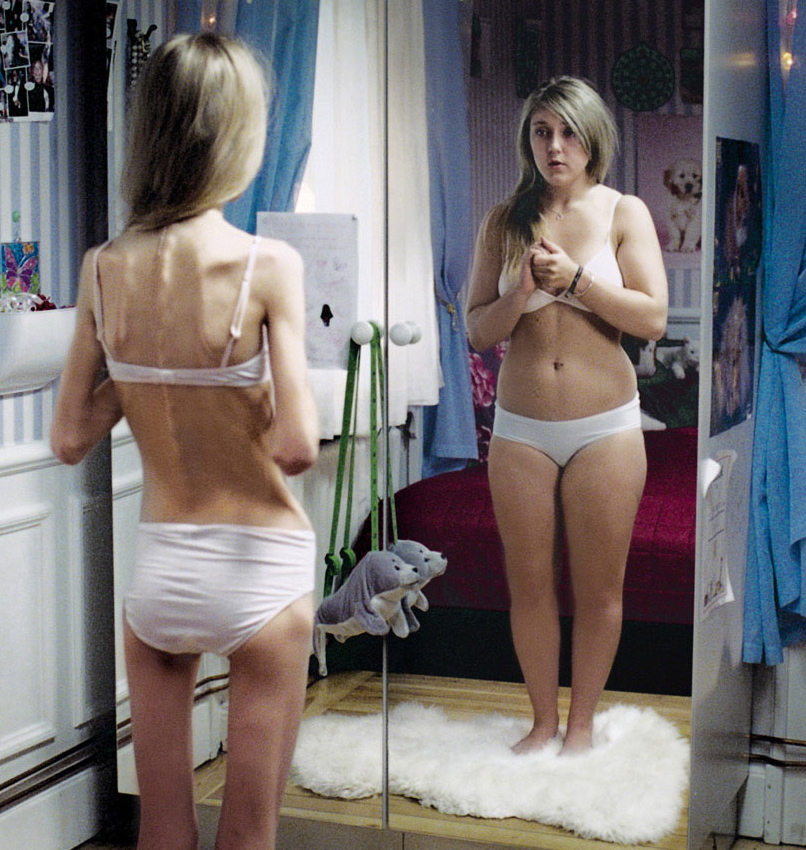* Names have been changed to protect the fictional.
Lisa's first question was, "How realistically can I pull this off?" Her question likely originated from having been told that children have to be abused over and over again throughout a lifetime to develop severe, pathological tendencies.

Oh...the perils of bad advice! Let me try to correct a wrong.
Whoever told you that was DEAD WRONG. I've seen many clients who have only had one experience with abuse (both young clients and teenagers) who developed many pathologies, the least of which is cutting. And then there are the people who were never abused, sexually or physically, who also develop a self-harm habit.
For those who don't know, cutting is a typical coping mechanism employed by those with prior abuse. While I don't pretend to understand it, from what I've read and heard clients say, there is something about the act of cutting (or burning yourself with erasers/car lighters/cigarettes; pulling hair, picking at wounds, self-flagellation, or otherwise hurting yourself) that relieves the emotional pain the person is in. This could be for several reasons:
1) The person feels like they deserve to be injured. Either they think they are "evil" or that they should be punished for having good thoughts. They might also hope that hurting themselves in some way will stop a worse punishment later from someone/something else.
2) The person wants to distance themselves from emotional pain/numbness. Cutting (or self-harm) is a way to feel something. Don't think of people cutting themselves in a frenzy. It's actually calm, calculated. It can help distract a person from what their going through internally.
3) The person is expressing something for which they have no words. Literally, the term for this is alexithymia ("no words feeling"). There just isn't a label to use to express how they feel. Cutting themselves can display anger, show emotional depth of pain, and shock others. It can also get them help without actually having to ask for it (if a friend were to see an uncovered arm of someone who cuts, they would be extremely concerned).
Jared might very well be suffering from Borderline Personality Disorder, based on all the nuances we went over in our email. Cutting is common in those with BPD, but not everyone with BPD cuts, and not every cutter has BPD. You can see my post on BPD to decide for yourself whether he fits the criteria or not. (And yes, parents often do ignore signs of their children's personality disorders until it's too late for treatment to do much more than maintain. Earlier intervention would be better to try to direct, to answer that question from your email.)
You mentioned that he cuts under his ribcage, so that he can wear gym uniforms and sleeveless shirts. If this is what he has to do, it works for your story. Far more common would be along the top or bottom of the forearm, mainly from the wrist to the elbow, and the upper thighs (which is an alternative you could use so people can't see Jared's cuts...and probably a bit more likely than the ribcage...but you do what you need to do to make it fit.) People really do cut everywhere and anywhere depending on their situational needs.
[One of the best posts I've ever read from someone who cut for years was on the blog, The Secret Life of a Manic Depressive. The description Seaneen uses to illustrate
 her body, and how she sees her skin is beautiful in its transparency. The post is her thinking about her cutting habit in retrospect. She includes pictures, so be forewarned if you have a tendency toward being triggered by photos.]
her body, and how she sees her skin is beautiful in its transparency. The post is her thinking about her cutting habit in retrospect. She includes pictures, so be forewarned if you have a tendency toward being triggered by photos.]Props on giving him another self-harm/other-harm fascination with guns/hunting. His hunting blog is a great way to deflect his extreme interest in the subject...but yet keep him connected to it at the same time. I'd make his articles impersonal a bit, which will make your huge downward spiral moment of him wanting to use his gun against his mother to put her out of her misery once and for all that much more shocking. Yet the signs were there...it'll be one of those things the reader will probably thumb back through your book to try to pick up on the signs.
You mentioned not wanting the reader to have an "oh, come on!" moment when Jared tried to make sure his mother dies instead of torturing them with more treatment and false promises. His does his "research," which will be likely connected to his blog, and tries to use his hunting rifle to do the deed. The real driving motivation behind this attempt is his fantasy world...the one he's created about the caretaker and his father coming home more. His lack of bonding with his mother will fuel this fantasy even more, so I say well done!
Thanks for writing in. Hope this was helpful. If there are any other questions about Jared's assessment (or if anyone has a question about self-harm), email me or drop your question in the comment section.
If you missed my survey about character stereotypes, you can still take it! Click here!
This service is for fictional characters only, so any resemblance to real life examples is entirely coincidental. Any other fictional character assessment questions can be directed to charactertherapist (at) hotmail (dot) com.



























